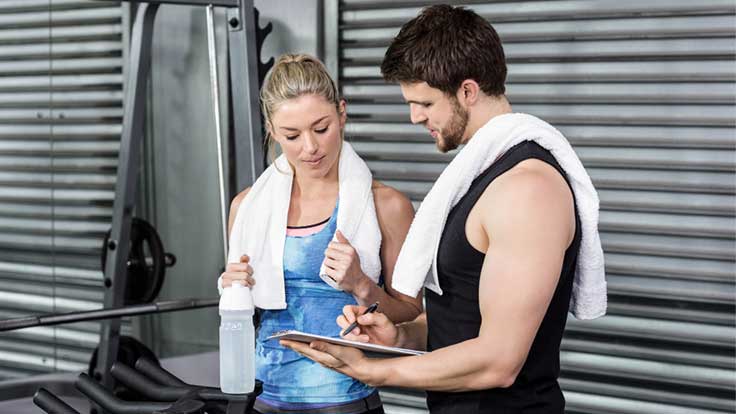In the first installment of this two-part series, Nutrition for Athletes, general nutritional standards were discussed to enhance exercise performance, especially for those who excel in athletics. Now, we will turn out attention to what you should eat before, during, and after exercising.
Before Exercising
It is generally recommended to consume a high carb snack or meal that contains protein 30 minutes to an hour before working out. It is best to avoid foods that are high in fat, as fatty foods are difficult to digest. This could, in turn, cause stomach upset and nausea during the workout. Examples of tasty pre-exercise snacks include a granola bar, smoothie, banana, oatmeal, eggs, and toast. Also, try to drink plenty of water before working out. Some athletes who run marathons or other high-performance athletics eat a high carbohydrate meal the night before a big event, which is called 'carb-loading' amongst the sports community. It is thought to boost glucose stores, which will provide the body with an appropriate amount of energy to complete the event.
During Exercise
During exercise, eating is not necessary or required because the body has enough reserve of glucose to fuel the body for the remainder of the workout adequately. The exception to this rule is if you are competing in an endurance event, such as a marathon or triathlon. Sometimes, it is necessary to eat a high carb snack during the event. Water is required during the workout, but try drinking little amounts frequently to prevent stomach upset. Once again, if you are working out for an extended length of time, try substituting water for a low-sugar sports drink to replace electrolytes.
After Exercise
Within 30 minutes after exercise, eat a small snack, such as a granola bar, smoothie, or nuts. This will allow your body to start replenishing what was lost without causing an upset stomach. Some athletes report an upset stomach if their first meal is within an hour of a physically-exhausting event. A small snack allows your stomach to adjust to the change of pace until your body is cooled down to enjoy a full meal. The first meal after a vigorous workout should include plenty of carbohydrates and protein. The protein will allow your muscles to rebuild, and the carbs will allow your body to replenish glucose stores. While water after exercise is essential, sometimes it is helpful to have a glass of milk, which is a good source of protein and carbohydrates.
In conclusion, exercise is an essential aspect of a healthy lifestyle, but it is vital to understand what your body needs to exercise appropriately. Your workout will suffer, along with your body if it is not appropriately fueled. Adjust the above recommendations to meet your needs. For instance, some people require longer to digest before working out. If this is the case, try eating two to three hours before your workout. If you have further questions regarding nutrition, speak with a dietician near you.











